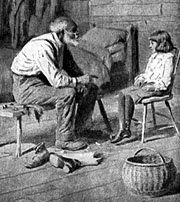 The debate about health care continues without ever looking at the fundamentals. The history of this sort of thing is of the government or some other large bureaucracy stepping in to cure some minor problem which has been exaggerated into a mandate.
The debate about health care continues without ever looking at the fundamentals. The history of this sort of thing is of the government or some other large bureaucracy stepping in to cure some minor problem which has been exaggerated into a mandate.Then they issue rules and regulations and centralize things with an aim towards solving the problem which most of the time wasn't much of a problem at all, just an excuse to intervene. The resulting centralization, increase in rules, and oversight causes a growth in cost. This is taken to mean that there is profiteering because after all it used to be less costly. Never you mind that you've added a bunch of regulators, regulation costs for compliance, and review, and the staff additions to do those things. Usually you've also made everything more rigid and inflexible, but the cry of "profiteering" seems to stick with no evidence and no understanding that what has happened was exactly what should have been expected to happen.
So what is the proffered solution? — why stronger collectivization of course, more regulation, more government intervention. The cycle then begins again and the situation gets still worse. Then with everyone rather fed up the thing begins to deteriorate. What worked at one time works no longer. "Things have changed" we are told. In the case of health care we get rationing, we get delays, we get death counseling, all in the name of improving things.
The solution however is not to centralize, but to decentralize and free market. The United States did not get to be the richest and most productive country in the world because of collectivization. It was the action of the free market, free men and women motivated by their own interests to make things better, cheaper, more available, in greater variety and appeal. Until we understand that collectivization is the disease and not the cure we are doomed to see deterioration in health care, in government, in everything that is collectivized. You'd think people would learn but the schools were one of the first things that were collectivized and so people actually learn less now than every before. It's a downward spiral, all the way down to dissolution.









No comments:
Post a Comment